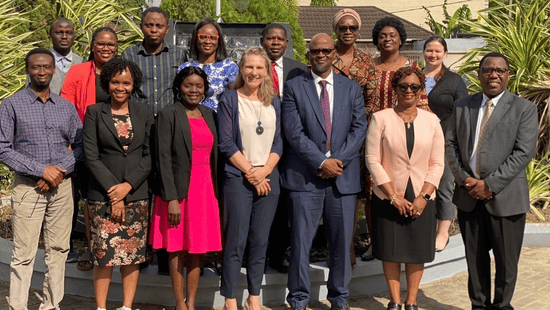Neurology Team Working to Improve Stroke Care in Nigeria
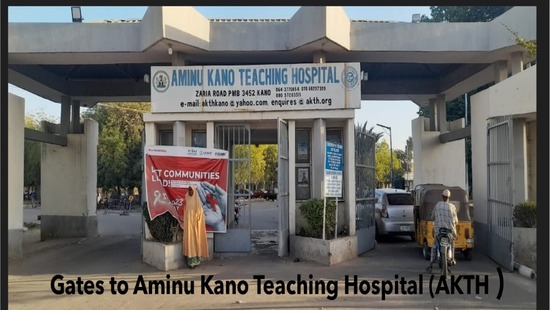
The third Annual Palliative Care Symposium took place at Lagos University Teaching Hospital (LUTH) from July 9–11, 2025, with the theme "Palliative Care in Nursing." The event was supported by the Mullooly Carey Foundation, the Roberta Buffett Institute for Global Affairs and a Northwestern University Robert J. Havey, MD Institute for Global Health catalyzer award.
The symposium was co-chaired by Ashti Doobay-Persaud, MD, associate professor of Hospital Medicine and Medical Education and co-director of the Center for Global Health Education at the Havey Institute for Global Health, and Joshua Hauser, MD, professor of Hospital Medicine and Medical Education and director of Education in Palliative & End-of-Life Care Program (EPEC) at Northwestern University Feinberg School of Medicine. Ann Ogbenna, MD, associate professor at the College of Medicine, University of Lagos, was the Nigerian co-chair and led the planning team. As the leader of the Palliative Care (PC) provider team at LUTH, Ogbenna established its PC curriculum, which led to the opportunity for the symposium.
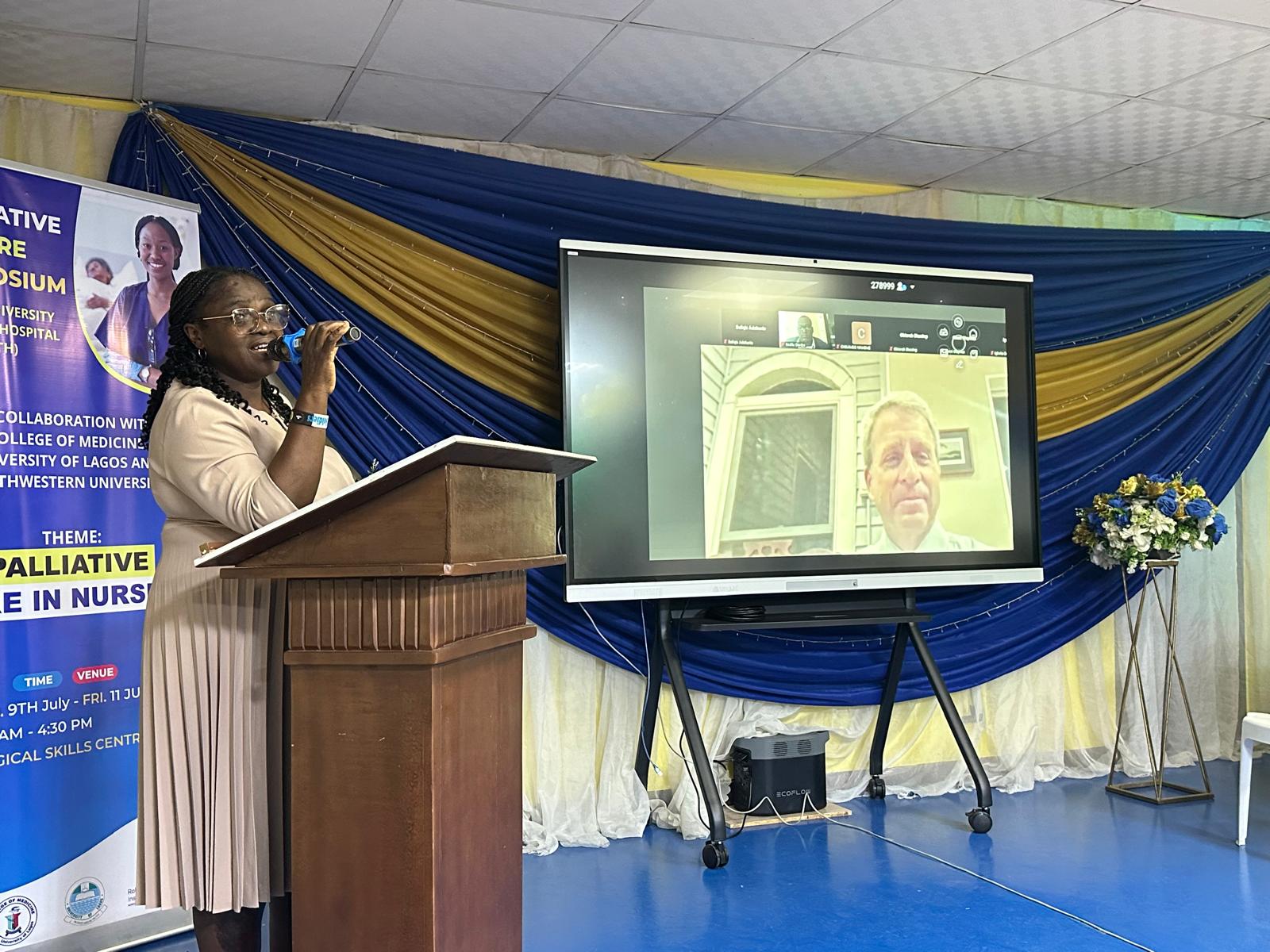
Ann Ogbenna, MD, associate professor at the College of Medicine, University of Lagos, welcomes attendees to the 2025 Annual Palliative Care Symposium while Joshua Hauser, MD, professor of Hospital Medicine and Medical Education, presents virtually.
This year featured facilitators and speakers from Northwestern University, Ann & Robert H. Lurie Children's Hospital of Chicago, Cornell University, International Children’s Palliative Care Network (ICPCN), City of Hope and several African partner institutions, including University College Hospital (UCH) Ibadan, University of Ilorin Teaching Hospital (UITH) Ilorin and institutions in Kenya.
This annual workshop brings together clinicians, nurses and public health practitioners to explore best practices, tools and roles to deliver high-quality palliative care. The 2025 symposium focused on the nursing profession and recorded an average of 58 onsite attendees and 23 virtual attendees each day. The event began with a series of lectures outlining the current challenges in palliative care delivery in Nigeria, emphasizing the need for better integration of palliative approaches within clinical care.
The sessions drew upon material from both EPEC and End-of-Life Nursing Education Consortium (ELNEC) while ensuring that the principles were adapted and appropriate for the Nigerian context. Sessions included interactive role-play to explore communication strategies in various palliative care scenarios, allowing participants to reflect on how different approaches can impact patient outcomes. Additional discussions focused on the intersection of culture, spirituality and patient care; symptom and pain management; and hands-on wound care practices.
On the final day, participants joined breakout sessions for a "train-the-trainer" program. The day culminated with a stakeholder council meeting of leaders in nursing education, which fostered strategic discussions on strengthening palliative care in nursing practice, and a stakeholder-driven process mapping exercise focused on pediatric palliative care at LUTH. During the process mapping session, participants used a sample map that combined elements from general United States palliative care systems and the broader care systems at LUTH. Participants identified where their current roles intersected with care processes, proposed feasible improvements and outlined long-term aspirational changes for the local context.
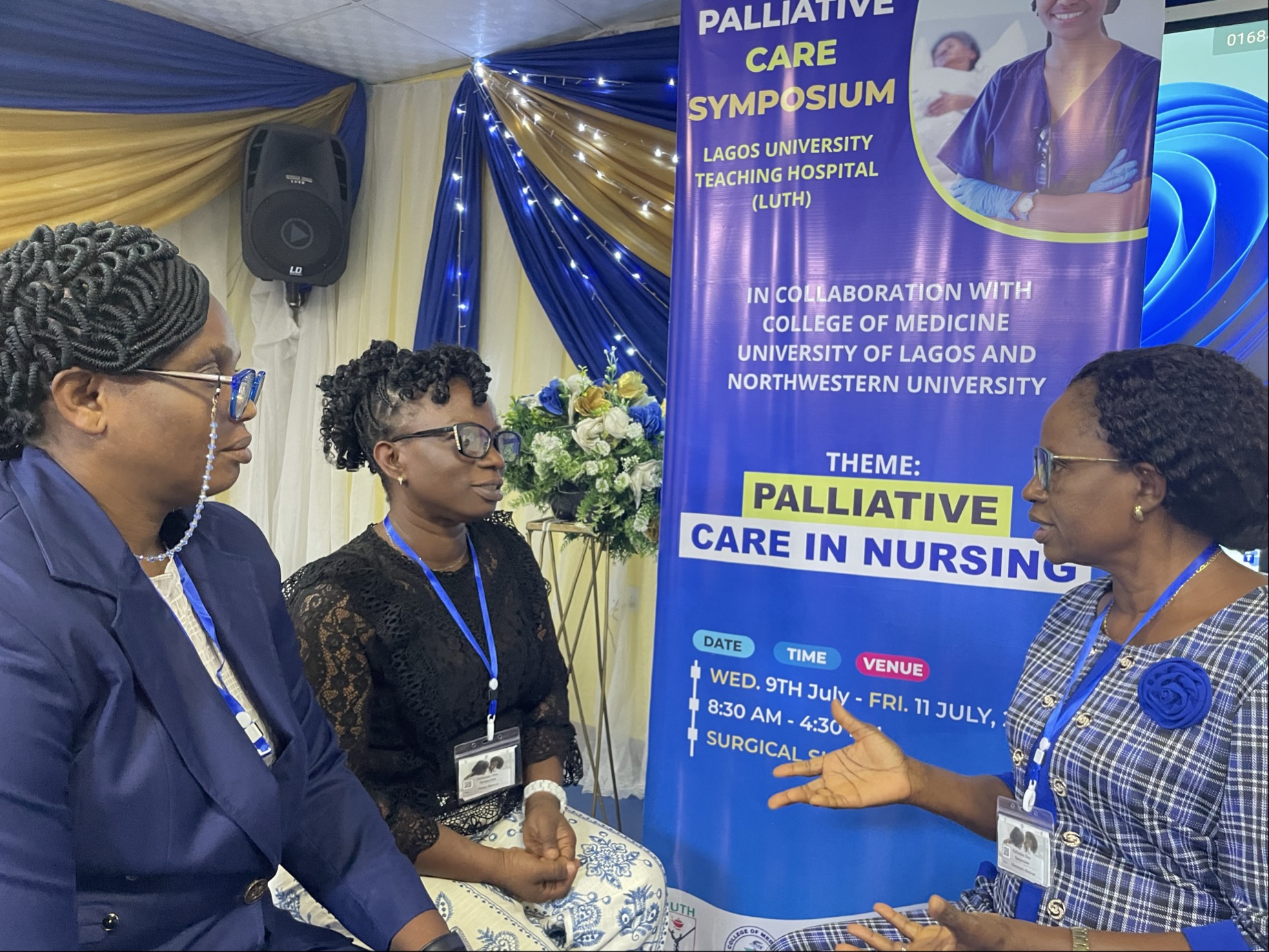
Attendees during a role-playing breakout session during the Palliative Care in Nursing symposium in Lagos.
Feedback from the post-symposium survey was overwhelmingly positive. All respondents agreed that the symposium offered practical strategies for integrating palliative care into daily nursing routines. Additionally, most rated the relevance of the symposium content as a five out of five, reflecting the strong alignment between the sessions and the participants’ professional needs. Respondents also expressed interest in attending future symposiums on palliative care in nursing.
"I'm incredibly grateful to continue this meaningful partnership with LUTH and to see the symposium training highlight palliative care nursing, an important and intentional step, and the outstanding attendance this year, which was truly energizing," Doobay-Persaud said. "The strong support from the nursing council further emphasizes the momentum behind advancing palliative care nursing in Nigeria. The energy and ideas shared throughout the symposium reaffirm the value of these partnerships—between local and international institutions—and demonstrate the lasting impact of capacity-building, knowledge exchange and mutual learning to drive meaningful progress.”
The energy and ideas shared throughout the three days reinforced the importance of continued partnership between local and international institutions and highlighted the impacts of sustained capacity-building, knowledge exchange and mutual learning. The symposium underscored the growing commitment to strengthening palliative care systems in Nigeria, laying the groundwork for future efforts to improve palliative care access and outcomes in Nigeria and beyond.
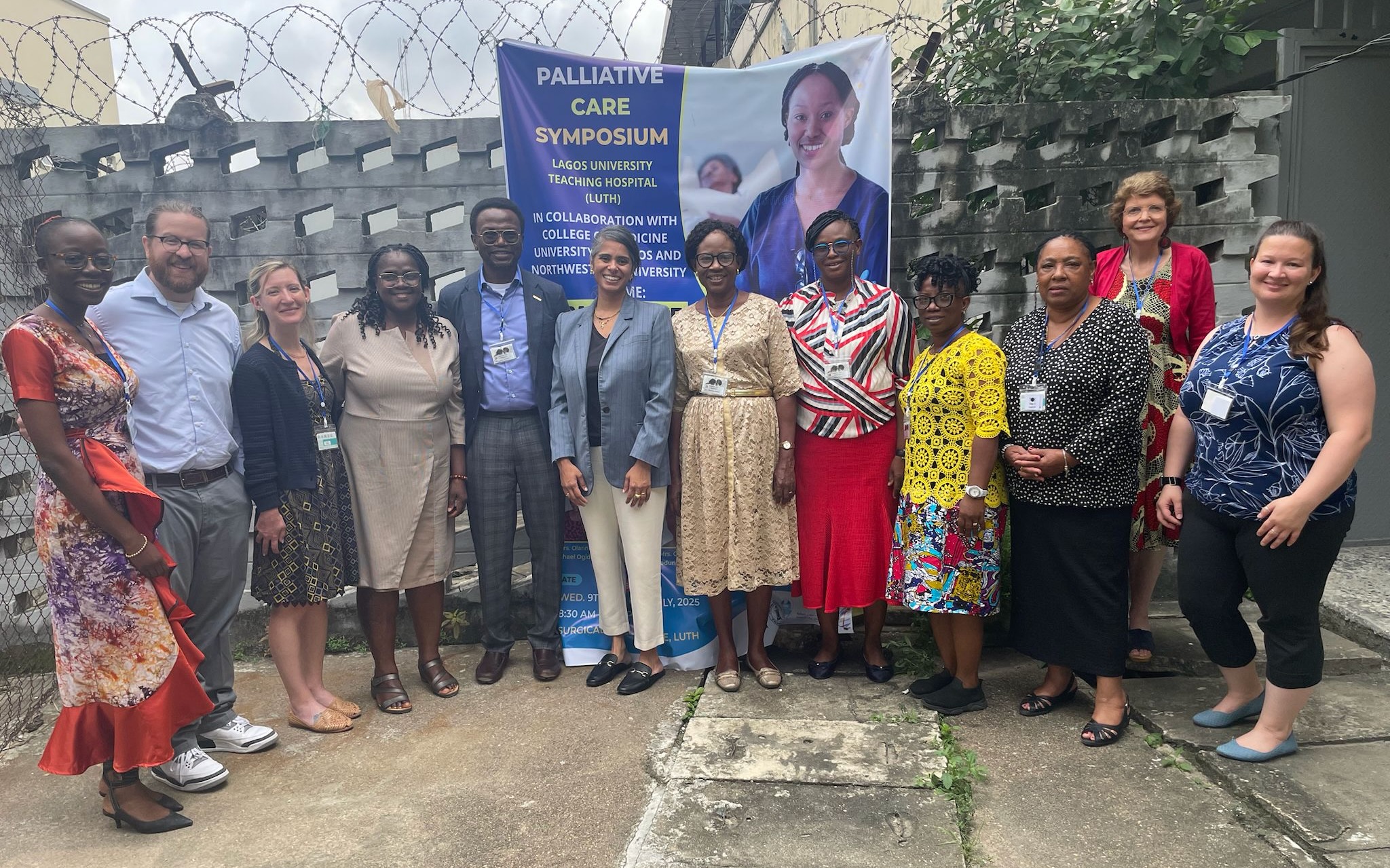
Facilitators and attendees included clinicians, nurses and public health practitioners who met to explore best practices, tools and roles to deliver high-quality palliative care.
Ashti Doobay-Persaud, MD, and Joshua Hauser, MD, are members of the Robert J. Havey, MD Institute for Global Health and Institute for Public Health and Medicine (IPHAM). Doobay-Persaud is a member of Northwestern University Clinical and Translational Sciences Institute (NUCATS).
To learn more about the Center for Global Health Education, visit their website.
For details on events, news and funding opportunities, sign up for the Havey Institute for Global Health newsletter.

